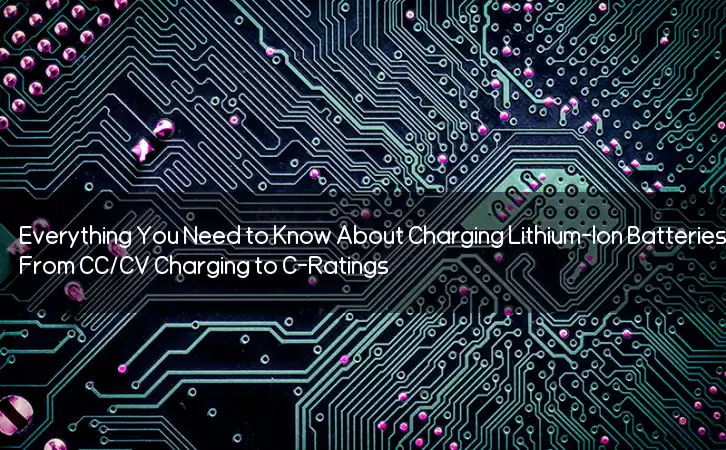Information Center
Everything You Need to Know About Charging Lithium-Ion Batteries: From CC/CV Charging to C-Ratings
Published:2023-07-30 00:34:38 Author:Green WCND Views:37Lithium-ion batteries have become increasingly popular in recent years, as they are used in a variety of devices, including smartphones, laptops, and electric vehicles. However, one question that often arises among users is whether or not these batteries require a special charger. In this article, we will explore this topic in detail.

Firstly, it is important to note that lithium-ion batteries require a specific type of charging called "constant current/constant voltage" (CC/CV) charging. This means that the battery must be charged with a constant current until it reaches a specific voltage, after which the voltage must remain constant while the current is slowly decreased until the battery is fully charged.

Fortunately, most chargers provided with lithium-ion devices are designed to carry out CC/CV charging automatically, so you don’t need to worry about finding a special charger. However, there are some things to keep in mind when using these chargers.
One of the most important things to remember is that you should always use the charger that came with your device or one that is specifically designed for your device. Using a generic charger, even if it appears to be similar to the original one, can damage your battery or even cause safety hazards.
Another factor to consider is the amperage of the charger. Most lithium-ion batteries have a maximum charging rate, beyond which they can become unstable and even catch fire. This rate is usually expressed in terms of the C-rating, which indicates the number of times the battery’s capacity can be charged in one hour. For example, a 1C-rated battery with a capacity of 2000mAh can safely be charged at a rate of 2 amps. It is important to use a charger that matches the C-rating of your battery to avoid damaging it.
Finally, it is worth noting that there are some advanced chargers available that offer additional features such as the ability to charge multiple batteries at once, or USB ports for charging other devices. While these can be convenient, they are not strictly necessary for charging lithium-ion batteries, and most users will find that the charger provided with their device is perfectly adequate.
In conclusion, while lithium-ion batteries do require a special type of charging, most chargers provided with devices are designed to handle this automatically. However, it is important to use a charger that is specifically designed for your device, matches the C-rating of your battery, and to avoid using generic chargers that could cause safety hazards. With these considerations in mind, you can safely and effectively charge your lithium-ion batteries and enjoy all the benefits that they offer.
Battery testers of different voltages exhibit significant differences in several aspects, and a 12V battery tester is primarily used for testing a range of spec···
Battery Testers (battery capacity testers/battery detectors) indeed come in various types tailored for different products. These different types of battery test···
The advantages and disadvantages of battery testers are as follows:AdvantagesFlexibility:Battery testers can accommodate various testing modes, making them adap···
Understanding the testing accuracy of golf cart battery testers is crucial for ensuring the precision of test results. Here are some methods to assess the testi···





